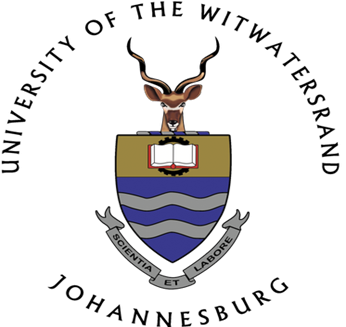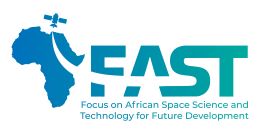
Wits was established in 1922 as a public university. As an independent public university, it reports annually using the integrated reporting process suggested by the latest King Report on good governance. Wits’ research is supported by major local and international sponsors that demand high standards of accounting and financial control. The governance system in place is stable and ethical enabling this level of accountability. Recent annual and integrated reports can be found at this website (https://www.wits.ac.za/about-wits/governance/annual-reports/). The Council (Statement on University governance, 2016), the senior leadership body of the University, manages risk via it risk sub-committee using internal audit, currently provided by KPMG (https://home.kpmg.com/za/en/home.html), and external audit, currently provided by PwC (http://www.pwc.co.za/). Within the governance and management framework Wits pays great importance to the ethical management of grants, bursaries, donations and similar cash transfers. Wits manages large grants from The National Research Foundation (NRF) of South Africa (http://www.nrf.ac.za/); International Foundations including the Andrew W Mellon Foundation, The Kresge Foundation – South Africa and Carnegie Corporation of New York. Wits works with the NRF to support staff and student international travel through various programmes enabling the travel of staff and students for Scientific Events including conferences, equipment related travel and training grants; and research visits within bilateral agreements. Wits also secures considerable grant investment from international funding agencies that use rigorous accounting processes. Some examples include the Family Health International (FHI), the National Institute of Health (NIH) and the National Institute of Allergy and Infectious Diseases of the NIH (NIAID). Wits has received financial support from many EU Programmes including Horizon 2020, FP7 and EDULINK II. With specific regard to Staff and Student Mobility, Wits has participated in Erasmus Mundus international credit mobility projects, namely “Economic Policies in the Age of Globalisation: Knowledge, Finance and Development” (EPOG Master) (2012 – present), EUropean - South African programme in TUning for Regional Needs in higher education (EU-SATURN) (2012 – 2017) and A European and South African Partnership on Heritage and Past (AESOP) (2012 - 2017). Wits also participates/participated in Erasmus+ international credit mobility with various partners including the Universitat de València (2015 – 2018), Sciences Po – Institut D’Etudes Politiques De Paris (2016 – present), Alliance of 4 Universities (A-4U) (Universitat Autònoma de Barcelona, Universidad Autónoma de Madrid, Universidad Carlos III de Madrid and Universitat Pompeu Fabra) (2016 – present), University of Limerick (2016 – 2019), Universita' degli Studi di Napoli Federico II (2016 – present), University of Copenhagen (2016 – present), Piraeus University of Applied Sciences (2016 to present), International Institute of Social Studies/Erasmus University Rotterdam (2017 – present) and Università degli Studi di Modena e Reggio Emilia, Italy (ongoing). In addition, Wits University has over 30 student exchange agreements with international partner institutions. Within the context of these partnerships, students are encouraged to spend part of their studies and/or research abroad and reciprocally international students spend part of their studies and/or research at Wits.
The astronomy group at Wits is a member of numerous international collaborations such as H.E.S.S., Fermi, AGILE, CTA, and KM3NeT, and is a member of the SA-GAMMA consortium with members from all over South Africa as well as Namibia. SA-GAMMA organizes the annual HEASA conference and provides mobility funding for attending conferences, symposia, and collaboration meetings; researchers at Wits are also experienced in receiving grants including mobility funds from entities such as the NRF and SARAO. The high-energy physics group is a member of the ATLAS group at CERN. The School of Physics has also hosted the SAIP conference multiple times.
Role in the project
WP4: The BSc Astronomy and Astrophysics programme at Wits prepares undergraduates for world class research in astrophysics through a thorough, intensive, cutting-edge curriculum. Since its inception in 2013, the programme has provided a pipeline for students, especially women and those from previously disadvantaged backgrounds, to enter postgraduate studies at Wits, other institutions, and abroad. Wits is eager to share insights and lessons learned with partner institutions as they seek to develop their own world-class undergraduate and postgraduate curricula, including strategies for remote and blended learning learned during the COVID-19 pandemic.
WP 5: Wits is the leading institution of WP5, capitalizing on many years of successful and active participation in Erasmus+ projects including CBHE projects. As a member of PAPSSN, the team from WITS has gained experience in administering student and staff mobility. Wits will apply these insights into developing staff mobility programmes for FAST4Future.



